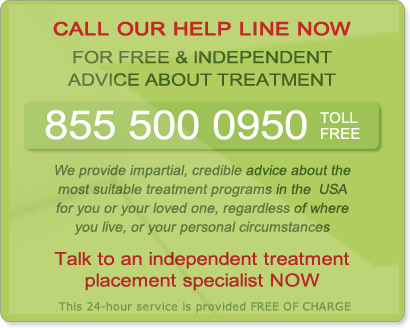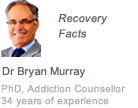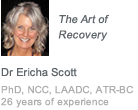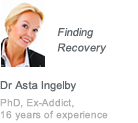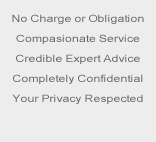Recovery from Alcohol Addiction
As with any addiction, the first step to recovery from alcohol addiction is to admit and accept that you have a problem with alcohol, and to commit to overcoming that problem. The association of alcohol with pleasure, sociability and fun times is deeply ingrained within our society. The ease with which alcohol can be purchased makes recovery from alcohol addiction difficult: temptation lurks at every turn.
The chances are that you have turned to alcohol not because you are some kind of weak or inadequate person, but because personal pressures and stresses in your daily life seemed easier to cope with after drinking. You are not a bad person because of this. Everybody has their own personal problems and issues, and everybody has their own way of dealing with those issues.
With professional help, you can find alternative strategies for dealing with life’s challenges without having to turn to alcohol. While alcohol might seem to provide a temporary escape to a better place, why not take a moment to consider whether alcohol really is the answer to your problems. Ask yourself the following questions, and answer them honestly:
- Has the quality of my life improved or worsened since I began drinking?
- How do I really feel after I have been drinking?
- Have I noticed any deterioration in my health since I began drinking?
- Can I afford the amount of money that I spend on alcohol?
- How does my drinking affect my relationships with my friends, colleagues and family?
You are probably already well aware of the dangers to health posed by long term habitual drinking. The good news is it is not too late to begin the process of recovery from alcohol addiction. It is possible to face and enjoy your daily life without needing to drink.
If you have considered the above and decided that you would like to be free of alcohol addiction that is great. You are over the first, and probably the biggest, hurdle. You will need help with your journey to freedom from alcohol, and it is not an easy journey for you to make, but a combination of self-help and professional help can get you there.
How you can help your own recovery from alcohol addiction
In common with most substance addictions, recovery from alcohol addiction is a two-stage process. The first stage is to become free of alcohol, and the second is rehab: the process of learning and adopting strategies and lifestyle changes that will give you the best chance of avoiding situations that might trigger a relapse.
Unless you have cast-iron willpower, you are unlikely to achieve recovery from alcohol addiction on your own. Nevertheless, there is a range of tips and methods that you can employ which will improve your chances of success of recovery from alcohol addiction when combined with professional help.
Gradually reducing your alcohol intake over a period of time so as to minimize the effects of alcohol withdrawal is the most effective approach. Here are some ideas that might help you to achieve this:
- When you are out, alternate each alcoholic drink with a soft drink, fruit juice or water.
- At home, remove as many of the temptations to drink as you possibly can. Ideally aim to have no alcohol in your home at all, but if you cannot do this initially try to ensure that you keep as little as possible.
- Try to regulate your drinking to coincide with meals. A full stomach slows the absorption of alcohol and reduces the appetite for drinking.
- Reduce interactions with friends or acquaintances that are a bad influence when it comes to drinking. Try to avoid regular drinking haunts, or situations in which you know you are likely to want to drink.
- Shout your intention to cut down and stop drinking from the rooftops. Let everybody who knows you know. The more people who are aware of your goal, the more supportive and protective a network you will have to help you achieve it.
- Take notes. Record your drinking habits. Jot down the times and days when you drink, the amount you drink, and the amount that you spend. Keep this going for one month and review your record at the end of the month. Keeping track this way may surprise or shock you when you consider the extent of your reliance upon alcohol and the cost, but it is also useful to help you identify patterns in your drinking habits for which there is a cause that needs to be addressed.
- Nominate one day per week as your ‘alcohol free’ day. If possible, take yourself somewhere that is completely removed from the temptations of alcohol and where you are fully occupied for the day.
By employing some or all of these methods to assist your recovery from alcohol addiction you are already taking positive steps towards long term success. But you may well need professional help too.
Professional help with recovery from alcohol addiction
You are not alone in having an alcohol dependency and wishing to deal with it. There are many alternative providers of professional help for recovery from alcohol addiction, who will treat you without prejudice, confidentially and supportively.
The principle types of professional help available are
- Self-help groups, the best-known of which is Alcoholics Anonymous (AA). Recovering alcohol addicts follow a step-by-step recovery programme, and meet regularly to share their experiences, progress and strategies for staying alcohol-free.
- At-home counseling is available, whereby counseling sessions for rehab and recovery from alcohol addiction can take place in your own home.
- Day programs. Typically taking place at a local clinic or hospital, day programs take place over a day or a number of hours each week and may have duration of up to nine months. Day programs typically offer a structured combination of counseling, therapy, education and support.
- Residential services. For those suffering from an alcohol dependence that they consider to be serious, residential services are perhaps the most effective solution for recovery from alcohol addiction. Detox and rehab take place in neutral, supportive surroundings, free of the temptations and influences to drink which may occur in the recovering addict’s everyday life.
If you are uncertain as to how to proceed in finding help, there is no reason why you cannot arrange a confidential chat with your own physician who may then refer you to the professional help that is best suited to you.
The decision to take action and begin the challenging process of recovery from alcohol addiction is life-changing. It takes immense courage, but once made you are one big step closer to being rewarded with a fuller, happier alcohol-free life.


